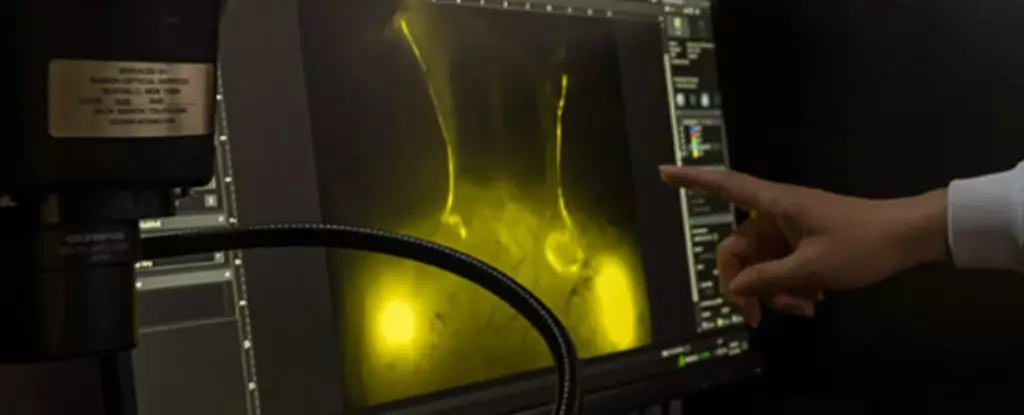The drug prostaglandin F2α has traditionally been used to induce labor in pregnant women, but recent research has unveiled an unexpected potential application. Scientists at the University of Rochester discovered that this compound can stimulate muscle contractions not in the uterine wall but in the walls of the neck’s lymphatic vessels. This activation of lymphatic vessels plays a crucial role in draining cerebrospinal fluid (CSF) from the brain into the lymph nodes for clearance, thus maintaining brain health.
As individuals age, the efficiency of the glymphatic system, responsible for clearing out waste products from the brain, diminishes. Older rats were found to have significantly reduced lymph flow compared to younger rats, indicating a decline in the brain’s ‘sewage system’. However, the use of prostaglandin F2α was able to restore the flow of CSF in aged rats to levels comparable to younger rodents. This promising result suggests a potential therapeutic strategy for combating age-related cognitive decline.
The glymphatic system has been linked to the development of inflammatory brain conditions such as dementia, Alzheimer’s, and Parkinson’s disease. The accumulation of toxic waste products in the CSF is associated with neurological disorders, highlighting the importance of maintaining proper fluid drainage from the brain. By targeting the cervical lymph vessels with prostaglandin F2α, researchers were able to enhance the clearance of waste from the brain, offering hope for future treatment options for these debilitating conditions.
While the results in rats are promising, further studies are needed to determine the effectiveness of prostaglandin F2α in humans. The drug was applied topically to the lymph vessels in the rat neck, a convenient location for intervention. Researchers believe that combining this approach with other therapies could lead to novel treatments for neurodegenerative diseases. However, the intricacies of the glymphatic system are still being unraveled, with new discoveries continuing to expand our understanding of how the brain clears waste and maintains its health.
The potential of a labor-inducing drug to protect the aging brain by improving lymphatic drainage highlights the interconnectedness of different bodily systems. The glymphatic system, once a hidden network in the brain, has now emerged as a key player in cognitive health and disease. While much remains to be explored in this field, the use of prostaglandin F2α represents a novel and promising approach to preserving brain function in the face of aging and neurodegenerative conditions. As research in this area progresses, we may see new therapeutic strategies emerge to combat the devastating effects of diseases like Alzheimer’s and Parkinson’s.


Leave a Reply